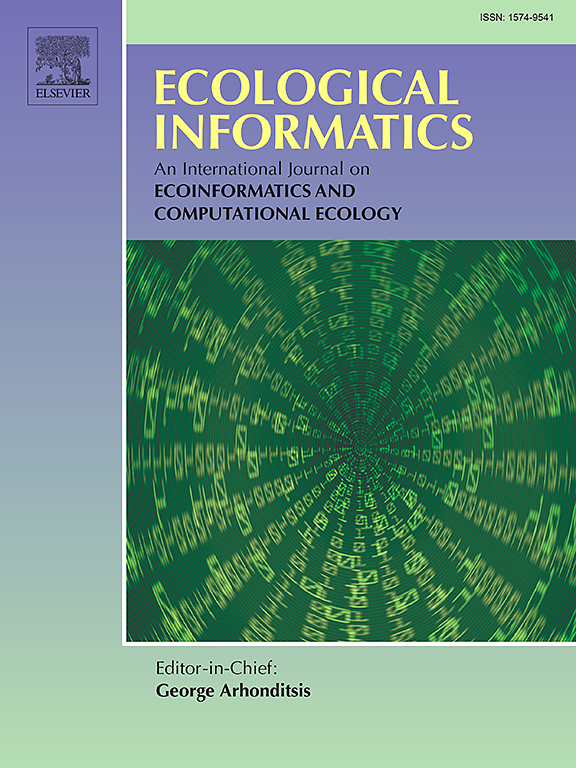Forecasting urban expansion: A dynamic urban growth model using DS-ConvLSTM to simulate multi-land regulation scenarios
IF 5.8
2区 环境科学与生态学
Q1 ECOLOGY
引用次数: 0
Abstract
This research addresses the computational inefficiency problem in deep learning-based urban growth modeling. This study proposes a novel Depthwise Separable Convolutional Long Short-Term Memory (DS-ConvLSTM) model to predict the urban growth patterns in Hanam City South Korea by 2030. The model incorporates six scenarios that reflect diverse land demands and urbanization patterns. Integrating 40 years of data, DS-ConvLSTM demonstrated superior performance compared to existing models, such as Convolutional Long Short-Term Memory (ConvLSTM), achieving an accuracy, F1-score, and Figure of Merit of 0.9801, 0.9510, and 0.8092, respectively. Notably, its efficient design reduces the network parameters by more than half compared to the ConvLSTM model, thereby decreasing model complexity. The study further explores potential land demand based on population and economic growth projections, ranging from 27.15 km2 to 29.31 km2. The analysis reveals trade-offs between development approaches. Business-as-usual scenarios lead to agricultural and forestland loss, while ecologically-focused development prioritizes forest preservation but increases development pressure on agricultural land. Sustainable compact development reduces land loss due to urban expansion through high-density redevelopment. However, high-density areas can lead to concentrated traffic congestion and environmental pollution. These findings provide valuable insights for urban planners, enabling them to make data-driven decisions regarding future land use policies.
预测城市扩张:使用 DS-ConvLSTM 模拟多土地调控情景的动态城市增长模型
本研究解决了基于深度学习的城市增长建模中计算效率低下的问题。本研究提出了一种新的深度可分离卷积长短期记忆(DS-ConvLSTM)模型来预测韩国河南市到2030年的城市增长模式。该模型包含六个情景,反映了不同的土地需求和城市化模式。综合40年的数据,DS-ConvLSTM与卷积长短期记忆(Convolutional Long - Short-Term Memory, ConvLSTM)等现有模型相比,表现出了更好的性能,准确率、f1得分和优值图分别为0.9801、0.9510和0.8092。值得注意的是,与ConvLSTM模型相比,其有效的设计使网络参数减少了一半以上,从而降低了模型的复杂性。该研究进一步探讨了基于人口和经济增长预测的潜在土地需求,范围从27.15平方公里到29.31平方公里。分析揭示了开发方法之间的权衡。“一切照旧”情景导致农地和林地流失,而以生态为重点的发展优先考虑森林保护,但增加了农业用地的发展压力。可持续紧凑型发展通过高密度重建减少了城市扩张造成的土地流失。然而,高密度的区域会导致交通拥堵和环境污染。这些发现为城市规划者提供了有价值的见解,使他们能够就未来的土地利用政策做出数据驱动的决策。
本文章由计算机程序翻译,如有差异,请以英文原文为准。
求助全文
约1分钟内获得全文
求助全文
来源期刊

Ecological Informatics
环境科学-生态学
CiteScore
8.30
自引率
11.80%
发文量
346
审稿时长
46 days
期刊介绍:
The journal Ecological Informatics is devoted to the publication of high quality, peer-reviewed articles on all aspects of computational ecology, data science and biogeography. The scope of the journal takes into account the data-intensive nature of ecology, the growing capacity of information technology to access, harness and leverage complex data as well as the critical need for informing sustainable management in view of global environmental and climate change.
The nature of the journal is interdisciplinary at the crossover between ecology and informatics. It focuses on novel concepts and techniques for image- and genome-based monitoring and interpretation, sensor- and multimedia-based data acquisition, internet-based data archiving and sharing, data assimilation, modelling and prediction of ecological data.
 求助内容:
求助内容: 应助结果提醒方式:
应助结果提醒方式:


